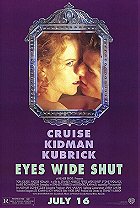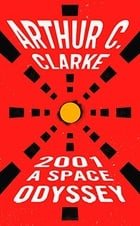This isn't so much a review as a comparison to Stanley Kubrick's film adaptation 'Eyes Wide Shut'.
With the exception of Vladimir Narbakov's Lolita, Stanley Kubrick was said to adapt the novels he thought weren't masterpieces in order to improve on them. This is arguably the case here, since Kubrick took many liberties with the source material to improve it from both a cinematic and storytelling perspective. Kubrick's changes turned an intriguing, but distant, short story into a nightmarish and haunting gothic mystery film.
Firstly, the pacing of Traumnovelle is one of its weaknesses. Kubrick's film Eyes Wide Shut is deliberately paced for the purpose of immersing the viewer into the protagonist's dreamlike state of mind. The film, although slow, creates a mood that is integral to appreciating it. In the novella, however, many of the film's most interesting details are skimmed and summarised which doesn't give the reader time to familiarise themselves with Fridolin or his surroundings. For example, two integral scenes in Kubrick's film, the confession of Albertina/Alice and Fridolin/Bill's discovery of the fate of Nachtigall/Nightingale after the masked ball, are both summarised less than several pages. This brevity doesn't allow the details to sink in.
Kubrick's addition of the party at the very beginning of the film added dimensions to the film absent from the novella. Mandy, the prostitute who Fridolin/Bill saves wakes up after she has passed out, had no incentive to warn Fridolin/Bill to leave the ritual in the novella. Kubrick's addition adds another dimension to the character. Ziegler also adds another dimension to the film that the novella lacks. Ziegler is the perfect representation of a seemingly polite yet powerful man who belongs to society's elite. The ambiguous denouement of Kubrick's film allows the mystery to linger so that the viewer is appropriately unnerved and contemplative. Finally, Alice/Albertina's flirtatious behaviour in the party scene prepares the viewer for the argument between Alice/Albertina and Fridolin/Bill in the following scene.
Ultimately, Dream Story is an intriguing novella, but pales in comparison to Kubrick's vivid, surreal and emotionally affecting cinematic wonder.
Traumnovelle review
 Posted : 12 years ago on 23 February 2014 08:19
(A review of Traumnovelle)
Posted : 12 years ago on 23 February 2014 08:19
(A review of Traumnovelle) 0 comments, Reply to this entry
0 comments, Reply to this entry
Ambitious and immersive, yet flawed.
 Posted : 13 years, 8 months ago on 16 June 2012 09:07
(A review of Assassin's Creed)
Posted : 13 years, 8 months ago on 16 June 2012 09:07
(A review of Assassin's Creed)Assassin's Creed is an enriching, immersive and satisfying game in regards to its atmosphere and gameplay, save a few glitches and flaws. Yet, its conventional and simplistic ending virtually strips the game of the philosophical credibility that it had attempted to establish beforehand. In addition, the many goals in this game grow incredibly repetitious as the player progresses through the game's narrative.
Regardless of this, Assassin's Creed perfects its open-world atmosphere through its detailed and complex depiction of the crusades. In addition, it poses many fascinating philosophical and moral questions that resist easy answers, even if Altair's strong, and arguably simplistic, adherence to the creed does undermine the player's ability to challenge themselves on an intellectual level. It's the moral absolutism of Altair that the game attempts to eschew.
Occasionally, some of the dialogue is stilted and the delivery isn't quite credible as one would hope, yet its ambition and scope seem to transcend its flaws. Assassin's Creed isn't an infallible game by any means, but it certainly isn't a mediocre cash cow.
Regardless of this, Assassin's Creed perfects its open-world atmosphere through its detailed and complex depiction of the crusades. In addition, it poses many fascinating philosophical and moral questions that resist easy answers, even if Altair's strong, and arguably simplistic, adherence to the creed does undermine the player's ability to challenge themselves on an intellectual level. It's the moral absolutism of Altair that the game attempts to eschew.
Occasionally, some of the dialogue is stilted and the delivery isn't quite credible as one would hope, yet its ambition and scope seem to transcend its flaws. Assassin's Creed isn't an infallible game by any means, but it certainly isn't a mediocre cash cow.
 0 comments, Reply to this entry
0 comments, Reply to this entry
Eyes Wide Open
 Posted : 14 years ago on 2 February 2012 11:48
(A review of Eyes Wide Shut)
Posted : 14 years ago on 2 February 2012 11:48
(A review of Eyes Wide Shut)Stanley Kubrick’s final film is perhaps the first of its kind: it is the only film I have watched that exists within the state of death itself. It’s no surprise; Stanley Kubrick died 4 days after submitting the final print into Warner Bros., Sydney Pollock died in 2008 and my grandparents, who saw this film during its theatrical release at an ill-fated screening, are dead. However, these aren’t merely the reasons this film evokes a death-like state, this film evokes a death-like state throughout Bill Harford’s sexual odyssey. At the masked ball, which is arguably the film’s centrepiece, women are used and discarded as corpses who are only valued for their material gain. This film is shroud in ultra-violet blue, especially at the end of the film where it accentuates the characters’ trembling flesh and vulnerable humanity, and the powerful red which contrasts against this blue reflects one of Kubrick’s favourite themes: dominance. Perhaps it’s inexplicable that Eyes Wide Shut evokes a man’s dying thoughts. Ironically, this film feels more fresh and timeless than many of its contemporaries, only reaffirming the inestimable value of Kubrick’s contributions to cinema and a decade of a cinematic drought aptly followed his death.
It was fashionable to deride Stanley Kubrick’s final film during its theatrical run, regardless of the fact that he considered it his personal favourite. It seems that the audience expected Kubrick to inundate them with gratuitous eroticism as opposed to ideas. Yet, Eyes Wide Shut has outsmarted time and the film industry itself. It was almost incongruously released a week before American Pie and the abysmal Will Smith star vehicle Wild Wild West. It continues to hold a mere 7.2/10 on IMDb in contrast to escapist science-fiction film The Matrix which holds an 8.7/10 rating and is listed in the top 30 films of all time, above Kubrick’s more cerebral science-fiction classic 2001: A Space Odyssey. All of this may be due to the fact that Kubrick argued that ‘Observancy is a dying art’ and Eyes Wide Shut requires an attention to detail and an attention span that transcends the average summer blockbuster; it’s easy to get lost in the terrifying labyrinth of Kubrick’s musings. Though, unlike other films, Kubrick’s Eyes Wide Shut refutes the transcendent imagery and magic that is featured in the majority of Kubrick’s films, even in Eyes Wide Shut itself, and strips humanity down to its fragile human core, figuratively speaking; Kubrick comes to the conclusion that when man is confronted with the cold and harsh reality, he favours comforting self-delusion and blissful ignorance.
Sydney Pollock’s Ziegler argues, during his amazing final monologue, that the Masonic orgies are practiced by society’s elite which excludes Bill. Bill spends the duration of the film’s first half attempting to engage in infidelity after his wife reveals that she was willing to choose one night with a naval officer over their future. Naturally, this enrages Bill and he spends the night attempting to fulfil his personal need to subjugate his feelings of impotence, sexual and otherwise. Even in the very beginning, when Bill walks with two models, his short stature implicitly denotes his lack of power. Bill is convinced that he has been subjected to a life of domesticity and his wife is responsible; he vows to reaffirm his masculinity. Kubrick paints long shots of New York at midnight which is designed to inspire the viewer with dread. Almost every single beautiful shot capturing the very essence of soft, warm colours in the beginning soon descends into the dark and strong colours that reflect the very dream-state many describe when they watch this film. Yet, to me, it evokes a foreboding death-like state which suggests impending doom.
Bill’s quest for reaffirmation of his masculinity only renders him emasculated when he enters a Masonic orgy and is rendered socially powerless by a group of the masked elite. Bill’s journey neither leads him towards enlightenment nor satisfaction but humiliation and understanding that he has been domesticated by the higher classes. Ironically, his quest for sexual empowerment only led him to the understanding of social domesticity; Bill is not as influential or elite as he had initially anticipated. Not unlike the elite’s perception of women; they use the high-class prostitutes as objects valued for their material value which reflects their perception of the masses that are responsible for their success. As in the beginning, when Ziegler needs Bill to revive a dying woman who almost overdoses on a combination of cocaine and heroin, Ziegler values Bill for his medical expertise which prevented trouble with the law rather than his personality.
Kubrick’s film argues that we live in ignorance of others perceptions of us and this is the ultimate existential fear of Harford; the elite have seen Harford unmasked, vulnerable and exposed. Pollock says ‘If you knew who was there, you wouldn’t sleep so well.’ Kubrick has finally exposed man for who he really is; vulnerable and ignorant of the mysterious forces which govern him. The final and most playfully complex of cinema’s closing lines concludes that Bill and Alice Harford have learned to stop worrying and love the bomb. They refuse to acknowledge their social impotence and would prefer for their eyes to remain wide shut, ignorant to the mysterious forces that govern them. On a more optimistic note, however, perhaps Bill’s odyssey only made him aware of his vulnerability, and Kubrick evokes this through the dark imagery that recreates the sense of subjective paranoia that Bill is experiencing. Bill realises what ultimately matters: love and family, as opposed to the power which he initially craved but only realised he was at the mercy of others’ application of such social power. I’m open to many interpretations of this film, because Kubrick wanted the audience’s eyes to remain wide open soon after they finished experiencing this masterpiece.
It was fashionable to deride Stanley Kubrick’s final film during its theatrical run, regardless of the fact that he considered it his personal favourite. It seems that the audience expected Kubrick to inundate them with gratuitous eroticism as opposed to ideas. Yet, Eyes Wide Shut has outsmarted time and the film industry itself. It was almost incongruously released a week before American Pie and the abysmal Will Smith star vehicle Wild Wild West. It continues to hold a mere 7.2/10 on IMDb in contrast to escapist science-fiction film The Matrix which holds an 8.7/10 rating and is listed in the top 30 films of all time, above Kubrick’s more cerebral science-fiction classic 2001: A Space Odyssey. All of this may be due to the fact that Kubrick argued that ‘Observancy is a dying art’ and Eyes Wide Shut requires an attention to detail and an attention span that transcends the average summer blockbuster; it’s easy to get lost in the terrifying labyrinth of Kubrick’s musings. Though, unlike other films, Kubrick’s Eyes Wide Shut refutes the transcendent imagery and magic that is featured in the majority of Kubrick’s films, even in Eyes Wide Shut itself, and strips humanity down to its fragile human core, figuratively speaking; Kubrick comes to the conclusion that when man is confronted with the cold and harsh reality, he favours comforting self-delusion and blissful ignorance.
Sydney Pollock’s Ziegler argues, during his amazing final monologue, that the Masonic orgies are practiced by society’s elite which excludes Bill. Bill spends the duration of the film’s first half attempting to engage in infidelity after his wife reveals that she was willing to choose one night with a naval officer over their future. Naturally, this enrages Bill and he spends the night attempting to fulfil his personal need to subjugate his feelings of impotence, sexual and otherwise. Even in the very beginning, when Bill walks with two models, his short stature implicitly denotes his lack of power. Bill is convinced that he has been subjected to a life of domesticity and his wife is responsible; he vows to reaffirm his masculinity. Kubrick paints long shots of New York at midnight which is designed to inspire the viewer with dread. Almost every single beautiful shot capturing the very essence of soft, warm colours in the beginning soon descends into the dark and strong colours that reflect the very dream-state many describe when they watch this film. Yet, to me, it evokes a foreboding death-like state which suggests impending doom.
Bill’s quest for reaffirmation of his masculinity only renders him emasculated when he enters a Masonic orgy and is rendered socially powerless by a group of the masked elite. Bill’s journey neither leads him towards enlightenment nor satisfaction but humiliation and understanding that he has been domesticated by the higher classes. Ironically, his quest for sexual empowerment only led him to the understanding of social domesticity; Bill is not as influential or elite as he had initially anticipated. Not unlike the elite’s perception of women; they use the high-class prostitutes as objects valued for their material value which reflects their perception of the masses that are responsible for their success. As in the beginning, when Ziegler needs Bill to revive a dying woman who almost overdoses on a combination of cocaine and heroin, Ziegler values Bill for his medical expertise which prevented trouble with the law rather than his personality.
Kubrick’s film argues that we live in ignorance of others perceptions of us and this is the ultimate existential fear of Harford; the elite have seen Harford unmasked, vulnerable and exposed. Pollock says ‘If you knew who was there, you wouldn’t sleep so well.’ Kubrick has finally exposed man for who he really is; vulnerable and ignorant of the mysterious forces which govern him. The final and most playfully complex of cinema’s closing lines concludes that Bill and Alice Harford have learned to stop worrying and love the bomb. They refuse to acknowledge their social impotence and would prefer for their eyes to remain wide shut, ignorant to the mysterious forces that govern them. On a more optimistic note, however, perhaps Bill’s odyssey only made him aware of his vulnerability, and Kubrick evokes this through the dark imagery that recreates the sense of subjective paranoia that Bill is experiencing. Bill realises what ultimately matters: love and family, as opposed to the power which he initially craved but only realised he was at the mercy of others’ application of such social power. I’m open to many interpretations of this film, because Kubrick wanted the audience’s eyes to remain wide open soon after they finished experiencing this masterpiece.
 0 comments, Reply to this entry
0 comments, Reply to this entry
2001: A Space Odyssey review
 Posted : 14 years, 9 months ago on 7 May 2011 11:01
(A review of 2001: A Space Odyssey)
Posted : 14 years, 9 months ago on 7 May 2011 11:01
(A review of 2001: A Space Odyssey)Certainly well written but it seems to lack the majesty and mystery that made the film a masterpiece.
 0 comments, Reply to this entry
0 comments, Reply to this entry
 Login
Login
 Home
Home 27 Lists
27 Lists 4 Reviews
4 Reviews Collections
Collections